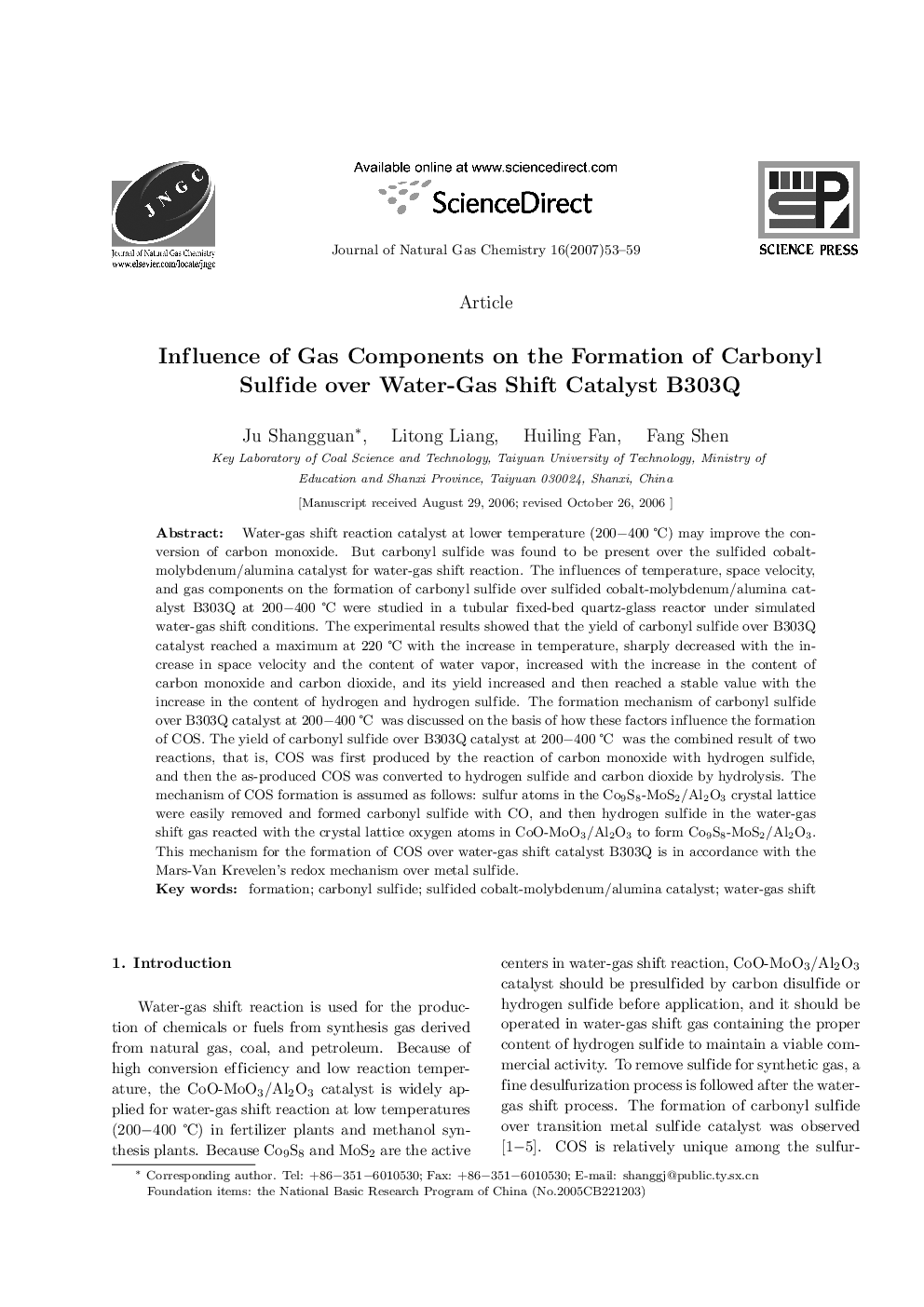| Article ID | Journal | Published Year | Pages | File Type |
|---|---|---|---|---|
| 71851 | Journal of Natural Gas Chemistry | 2007 | 7 Pages |
Water-gas shift reaction catalyst at lower temperature (200–400 °C) may improve the conversion of carbon monoxide. But carbonyl sulfide was found to be present over the sulfided cobalt-molybdenum/alumina catalyst for water-gas shift reaction. The influences of temperature, space velocity, and gas components on the formation of carbonyl sulfide over sulfided cobalt-molybdenum/alumina catalyst B303Q at 200–400 °C were studied in a tubular fixed-bed quartz-glass reactor under simulated water-gas shift conditions. The experimental results showed that the yield of carbonyl sulfide over B303Q catalyst reached a maximum at 220 °C with the increase in temperature, sharply decreased with the increase in space velocity and the content of water vapor, increased with the increase in the content of carbon monoxide and carbon dioxide, and its yield increased and then reached a stable value with the increase in the content of hydrogen and hydrogen sulfide. The formation mechanism of carbonyl sulfide over B303Q catalyst at 200–400 °C was discussed on the basis of how these factors influence the formation of COS. The yield of carbonyl sulfide over B303Q catalyst at 200–400 °C was the combined result of two reactions, that is, COS was first produced by the reaction of carbon monoxide with hydrogen sulfide, and then the as-produced COS was converted to hydrogen sulfide and carbon dioxide by hydrolysis. The mechanism of COS formation is assumed as follows: sulfur atoms in the Co9S8-MoS2/Al2O3 crystal lattice were easily removed and formed carbonyl sulfide with CO, and then hydrogen sulfide in the water-gas shift gas reacted with the crystal lattice oxygen atoms in CoO-MoO3/Al2O3 to form Co9S8-MoS2/Al2O3. This mechanism for the formation of COS over water-gas shift catalyst B303Q is in accordance with the Mars-Van Krevelen's redox mechanism over metal sulfide.
